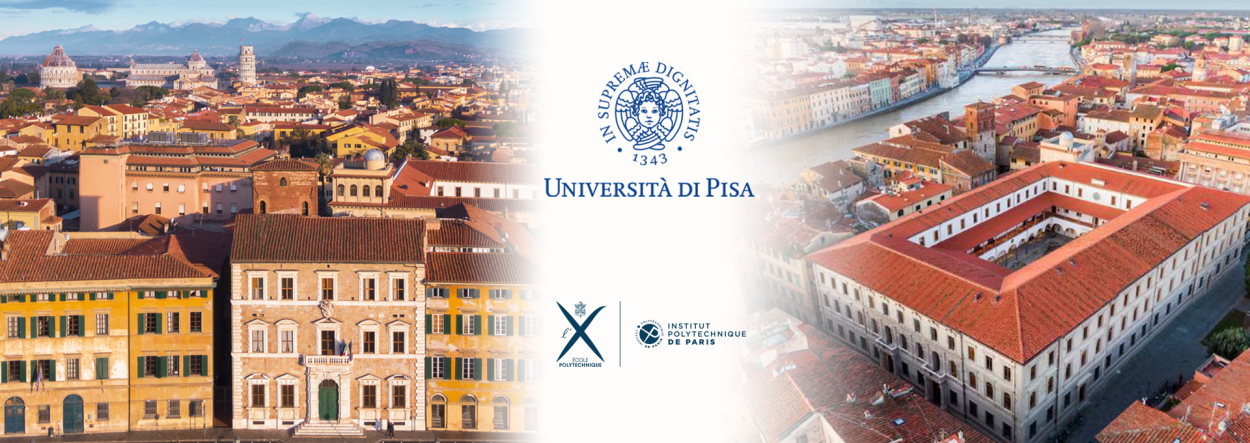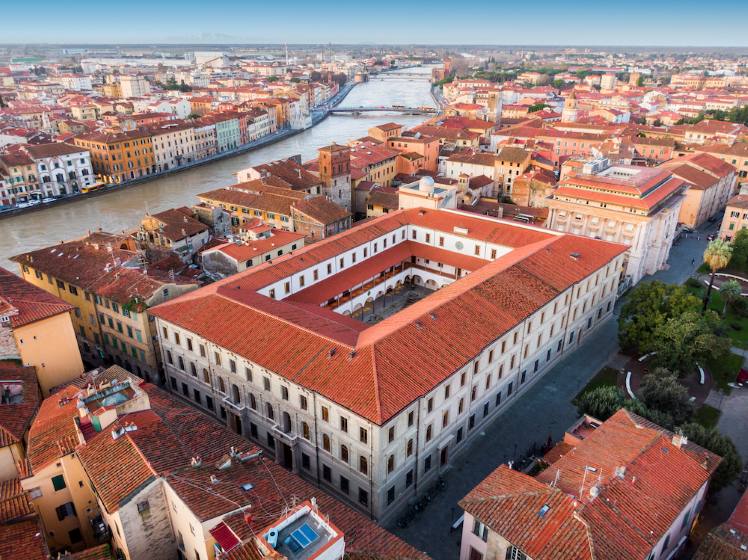L’X reaffirms its partnership with the University of Pisa

Since its official foundation in 1343, the University of Pisa has consistently made important contributions to scientific discoveries, intertwined with significant historical events. Its institutional cooperation with École Polytechnique dates back to 2011 and comprises numerous scientific collaborations and academic projects.
In June 2025, the two higher education institutions renewed the agreement for their double degree program in physics. Established in 2016, the agreement enables students of École Polytechnique’s Ingenieur Polytechnicien program to pursue their 4th-year studies in the Master of Physics program at the University of Pisa. On completion of their studies, students qualify for the University of Pisa's Master’s degree Laurea Magistrale in Fisica, in addition to their École Polytechnique diploma and Master’s degree.
Renowned for the excellence of its research and education in Physics and Mathematics, the University of Pisa ranks among the best universities worldwide. Throughout its history, the institution’s faculty has included notable figures such as Galileo Galilei. The Nobel Prize winners in physics Enrico Fermi and Carlo Rubbia, and also the Nobel Prize winner in literature Giosuè Carducci are among the university’s eminent alumni. The Department of Physics and six other departments at the university are currently designated as “Departments of Excellence” by the Italian Ministry of Higher Education and Research, attesting to their high quality of research and expertise.
Mario Di Luca was one of the first graduates of the double-degree program in physics offered by École polytechnique and the University of Pisa. In the final year of his Bachelor’s degree in physics at the University of Pisa, he was keen to continue his studies abroad and decided to apply for the double-degree program in 2018. He knew that he would first have to pass the entrance exam for the Ingenieur Polytechnicien program. "That same year, École polytechnique’s professor Gérard Mourou won the Nobel Prize in Physics, which convinced me to take the competitive entrance exam", he recalls.

View of the University of Pisa
It was thanks to Francesco Califano, Professor of Physics at the University of Pisa, that Mario Di Luca learned of the possibility of joining the double-diploma program. Involved in several scientific collaborations with researchers at École Polytechnique's Plasma Physics laboratory (LPP)1, physicist Francesco Califano was involved from the outset in creating and implementing the double degree in physics between the two establishments. “Knowing the high level of physics and mathematics at l’X, I strongly supported this agreement from the very beginning”, he recounts.
“The double-degree program allows students to experience different education systems and approaches", he explains. To encourage students to opt for this double-degree course, he informs each graduating class of this opportunity, which “in addition to its scientific interest, also enables them to get to know another country and another culture”.
Francesco Califano explains that “the curriculum at the University of Pisa below Master's level is already highly specialized in one particular subject - in this case physics - whereas at l’X the spectrum is much broader”. Mario Di Luca shares this observation, which illustrates the complementary nature of the double degree’s curricula. He says that “the physics degree course at the University of Pisa offers little flexibility in the choice of courses to be taken, whereas l’X offers great flexibility in the choice of courses”, adding that on the other hand he “had to work for the mathematics course” when he joined l’X.
Mario Di Luca obtained his double degree from l'X and the University of Pisa in 2021. He then continued his studies in physics, pursuing a doctorate at EPFL in Lausanne, which he is currently preparing.
When asked about his international academic career, Mario Di Luca states that it has taken place “within the framework of the values and educational models of the European Union”, allowing him to discover different ways of thinking that are nonetheless very close to those with which he grew up in Italy. “Nevertheless, my career path has enabled me to discover different ways of teaching the same subject and approaching it from different angles”, he continues. The ability to approach the same subject from different angles and different points of view being one of the most essential keys to future successful international collaborations.
1 LPP: a joint research unit CNRS, École Polytechnique - Institut Polytechnique de Paris, Observatoire de Paris, Sorbonne Université, Université Paris-Saclay
 Support l'X
Support l'X